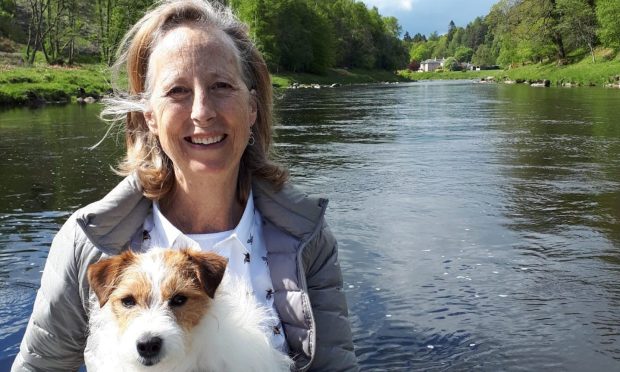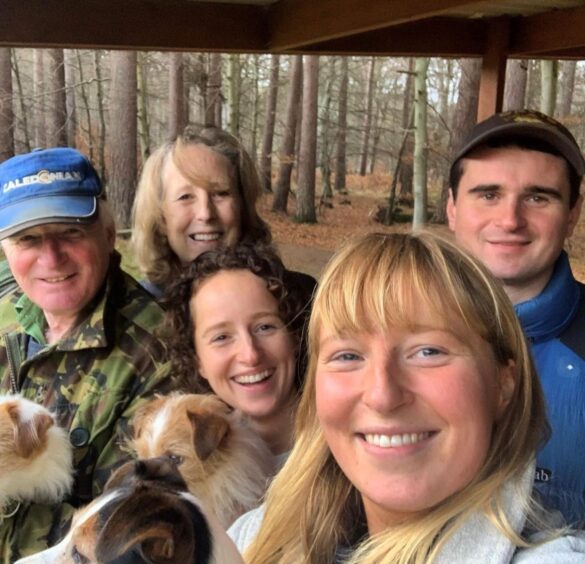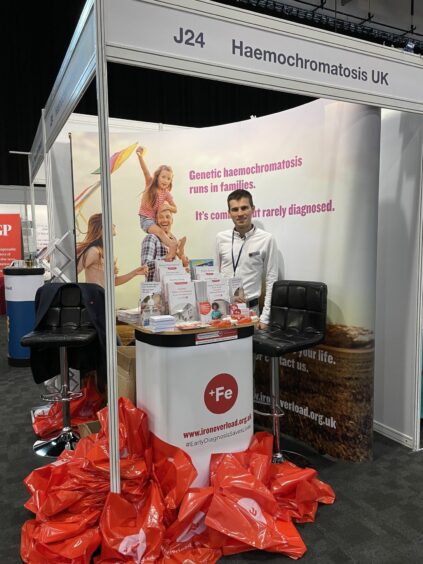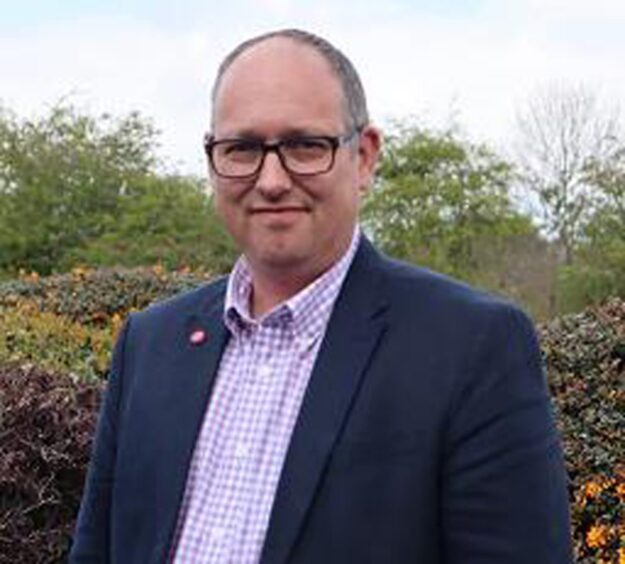Thousands of Aberdeenshire households are being urged to take up screening for a genetic condition known as the ‘Celtic Curse’ following the death of a local mum.
Miranda McHardy, from Banchory, tragically died last March following a late diagnosis of hemochromatosis.
The condition – the most common genetic one across the UK – causes too much iron to build up in the body and if untreated can lead to cancer, heart and liver disease.
Miranda’s brother, Sir George Forbes-Leith, also has the condition – and believes his sister would still be alive today had she been diagnosed earlier.
The family has been fundraising for free testing kits, with enough tests for 25,000 homes in postcodes AB30 1/AB31 4-5-6/AB39 2-3 and DD10 0.
Their fundraising was supported by Haemochromatosis UK’s Friends Against Iron Overload, with free testing supplied by Haemochromatosis UK.
Late haemochromatosis diagnosis led to ‘untimely death’
Mrs McHardy well a well-known pillar of the Aberdeenshire community as deputy lieutenant, and spearheaded the campaign to secure the region its flag.
The mum-of-three had been diagnosed with chronic arthritis and type one diabetes, along with suffering from heart and liver damage.
Louisa Leader said her sister’s death at 59 was a tragedy.
“My beloved sister Miranda died in March last year as a result of late diagnosis of haemochromatosis.
“Her early and untimely death left behind three devastated children and her husband Julian, not to mention three siblings, nephews nieces and a close extended family.”
‘Celtic Curse’ symptoms
It’s referred to as the ‘Celtic Curse’ as it is common in people of Scottish and Irish ancestry.
One in 133 people are thought to be at risk.
Common symptoms of haemochromatosis include:
- Heart problems
- Joint pain, particularly in the first two fingers
- Liver disorders
- Skin problems
- Stomach pain or discomfort
- Tiredness, fatigue and weakness
The charity hopes to roll out testing across the country, with the condition thought to directly affect almost 1.2 million in the UK.
At the moment, Haemochromatosis UK says that the NHS is caring for just 20,000 people with the condition, which the charity describes as being “under-diagnosed”.
‘Early diagnosis of haemochromatosis saves lives’
Chief executive of Haemochromatosis UK, Neil McClements said: “We were inspired by the McHardy family’s determination to transform their personal tragedy into a better outcome for other people across rural Aberdeenshire.
“We’re working with the whole community to offer free genetic screening for this
common, but often undiagnosed treatable condition. Early diagnosis saves lives and diagnosis starts with public awareness.”
Once the kit is returned, the charity will send the results to everyone tested within two weeks – including their NHS GP – with information about their tests and what to do next.
Everyone who takes a test is provided with a free 45-minute appointment with one of the charity’s specialist nurses to discuss the results and discuss the next steps.



